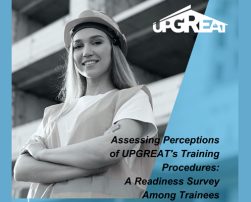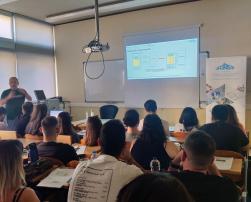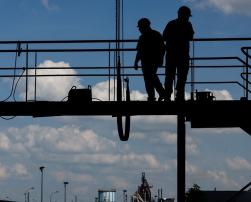Topic of the Month (March 2024)
Each month a relevant topic and several sub-topics are covered in detail. For the Topic of the Month, content following a common thread is developed by BUILD UP Editorial Board in collaboration with the Board of Ambassadors and other relevant experts in the field. This includes producing articles, case studies, webinars and more, all in line with the specific topic selected. Relevant events are also identified and highlighted.
Topics of the Month are announced at the end of the previous month in our website and newsletter. Please write us if you wish to know more about our upcoming topics of the month.

In article #7 of the ARISE Currency of Skills series, Paul McCormack, coordinator of the ARISE project, examines how skills as a currency help increase the competitiveness of companies and countries and lift economies to new heights.

The EU has updated the Energy Efficiency Directive to meet its 2030 target of reducing greenhouse gas emissions by at least 55% from 1990 levels, enhancing energy efficiency goals to support climate action and energy security.

Skills are no longer just a means to an end; they have become an asset in their own right. Just like money, skills can be traded, invested, and accumulated. They have the power to open doors and create opportunities. In a skills-based economy, individuals who possess in-demand skills are more likely to secure high-paying jobs and enjoy greater career mobility.

This report evaluates the perceptions of attendees who participated in training seminars organized by the EUKI project UPGREAT, analyzing their readiness levels for energy renovations.

In this 4th article of the ARISE Currency of Skills series, Martin Kelly, Jan Cromwijk and Jaap Kolk examine the benefits of investing in skills through lifelong learning and outline how skills are the mechanism to bridge the gap between knowledge and wealth.

As part of the ARISE Article series, the project addresses in this article the values of skills in the design and construction of qualified workers in society and as individuals. It also delves into how skilled workers can contribute to economic growth and competitiveness in different sectors.
New European Bauhaus Academy Alliance.

The drive towards energy-efficient building practices, exemplified by initiatives like the EUKI project UPGREAT, underscores the pivotal role of education and training.

In the dynamic world of the built environment, skills are paramount. Formal education programs, like architecture, engineering, and construction management degrees, provide a solid foundation of knowledge and expertise. Ongoing training initiatives, such as the ARISE project, and continuing education courses keep skilled workers updated with industry trends and technological advancements, ensuring their relevance and adaptability in the evolving construction sector.

As part of BPIE´s Climate Conversations series, Tom Deleu (EFBWW’s Secretary General) has been interviewed to discuss about skills in construction.
